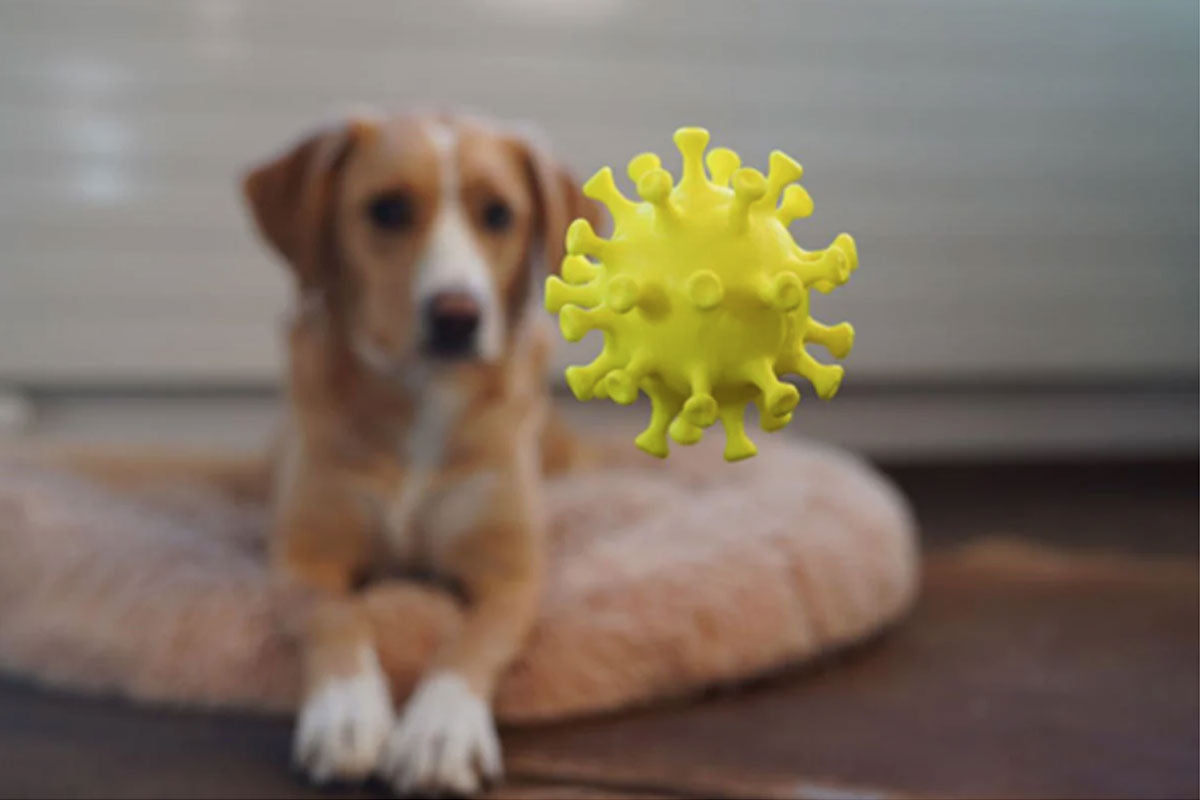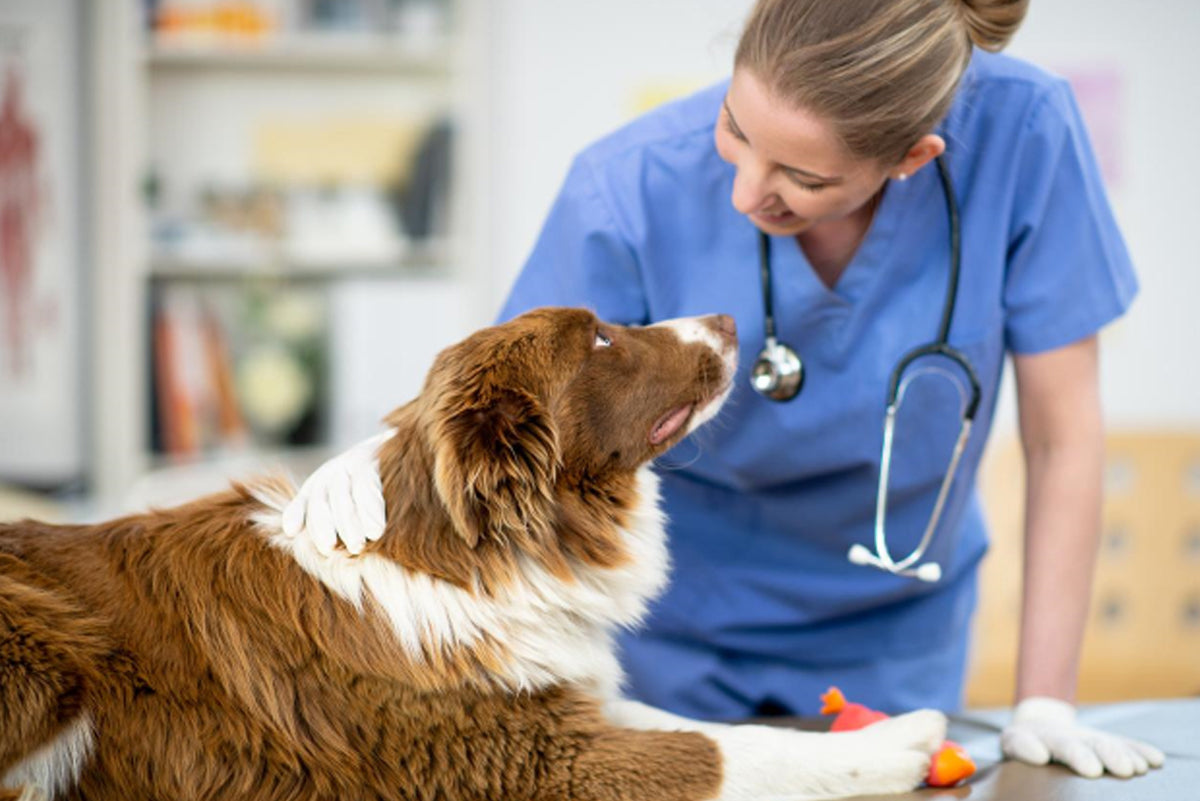Dogs, like people, are susceptible to a wide range of illnesses, ranging from colds to more serious diseases such as cancer.
A robust immune system can help prevent your dog from getting sick, improve digestive health, and increase their energy levels.
Fortunately, there are things you may do to help your dog's immune system function at its best. But first, let's look at what causes a weak canine immune system and how to detect the symptoms.
What Causes a Weak Immune System in Dogs?
A dog's immune system is responsible for fighting off infection and disease. However, several factors can weaken a dog's immune system, making them more vulnerable to illness, including:
- Disease and viral infections
- Vaccines or Medication
- Surgery
- Stress/ Lack of sleep
- Lack of exercise
- Poor nutrition
- Environmental factors
- Aging
Finally, Hereditary Immunodeficiency Disorders are a group of genetic disorders passed down from parents to puppies and can cause a weak immune system.
Unfortunately, inherited immunodeficiency factors are unavoidable and difficult to treat.
How Do You Know if Your Dog Has a Weak Immune System?
There are a few telltale signs that your dog may have a weak immune system, including:
- Lethargy or fatigue
- A decrease in appetite or sudden weight loss
- Chronic allergies
- Autoimmune disease
- Diarrhea/ vomiting
- Frequent infections
- Slow-healing wounds
- Recurring ear infections
Assuming you see any of these symptoms in your dog. In that scenario, it's critical to schedule an appointment with your veterinarian so they can thoroughly identify the problem and devise treatment options.
What Herbs Are Best for a Dog's Immune System?
You might have heard that herbs can be beneficial for humans, but did you know that certain herbs can be helpful for a dog's immune system?
Here are five safe herbs for dogs that can help to strengthen their immune system:
1. Echinacea
The herb helps boost the immune system in humans, and it can also be beneficial for dogs. This herb can help increase the production of white blood cells, which play an essential role in fighting infection or illnesses.
2. Aloe vera
This aloe vera herb is best known for its healing properties, but it can also help to boost the immune system. This herb contains a compound called acemannan, which stimulates the immune system.
The herb is also known to soothe the digestive system, making it less likely for your furry friend to develop stomach issues leading to infection.
3. Ginseng
It's a herb that has long been touted for its health benefits. This herb can help improve energy levels and stamina, and it has also been shown to boost the immune system.
4. Rosehips
The Rosehips herb is a good source of vitamin C, an essential nutrient for immunity. This herb can also help to fight inflammation and promote healing.
5. Blackcurrant
This herb is rich in vitamin C and other antioxidants. This vitamin is essential for a healthy immune system, and it can also help protect against free radicals.
Blackcurrant is also a good source of antioxidants, which can help to reduce the risk of infection.
You can give these herbs to dogs daily or as needed depending on their health condition. When unsure about giving your dog any of these herbs, please consult your veterinarian first.
How Often Should I Give My Dog an Immune Booster?
There is no real consensus on how often you should give your dog an immune booster, as the answer largely depends on your dog's lifestyle and individual health needs.
However, a good rule of thumb is to consult with your veterinarian about how often you should give your dog an immune booster to ensure that they stay healthy and protected.
There are some general things to keep in mind when boosting your dog's immune system. For starters, make sure that your dog is getting enough exercise and is eating a balanced diet.
Additionally, consider giving your furry friend regular vaccinations and providing him with a quality probiotic supplement.
And finally, if you suspect that your pet may be struggling with a current infection or illness, don't hesitate to seek veterinary care.
What Are Some Side Effects of an Immune System Booster?
As with any medication, giving your dog an immune booster has potential side effects.
After a day or two upon receiving the booster, your dog may appear sluggish or fatigued more than usual.
This is entirely normal but not cause for concern; their bodies are working hard to build immunity! Some dogs may experience gastrointestinal upset (diarrhea or vomiting) after receiving an immune booster shot in sporadic cases.
If this happens, it should resolve itself within 24-48 hours and is no cause for concern. However, if they persist or seem to be worsening, don't hesitate to contact your veterinarian.
Less common but more severe side effects can also occur, including vomiting, lethargy, and collapse. These require immediate Veterinary attention.
So long as you monitor your pet closely after giving them an immune booster and contact your veterinarian with any concerns, they will likely enjoy the benefits of the medication without issue!
Critical Digestive Restore
Best-on-the-market w/ 10 Billion active cultures per dose
Maximize Your Dog's Nutrient Absorption And Support Healthy Digestion

Learn More
Critical Immune Defense
w/ Turkey Tail, Reishi, Shiitake, & Maitake Mushrooms + White Turmeric Root Extract
Fight Viruses, Diseases and Cancers

Learn More
What Are Some Natural Remedies for a Weak Immune System?
There are a few natural remedies that you can use to boost your dog's immune system, including:
1. Exercise
One is to make sure your dog is getting enough exercise. Exercise helps to increase the number of white blood cells, which are essential for fighting infection.
2. Healthy Diet
You also should ensure that your dog is eating a nutritious diet. Antioxidant-rich foods can aid in strengthening the immune system.
Fruits and vegetables, particularly dark-colored fruits and vegetables like blueberries, cherries, and spinach, are good providers of antioxidants.
3. Supplements and Probiotics
You may also give supplements to your dog to enhance its immune system. Many supplements are available, so you should talk to your veterinarian about which one would be best for your dog.
Regular doses of probiotics can also help maintain a healthy balance of bacteria in the gut, which is vital for overall health and immunity.
4. Enough Sleep and Rest
Finally, you should ensure that your dog is getting plenty of rest. Sleep is important for overall health and well-being because it allows the immune system to recoup and repair.
If your dog isn't getting enough sleep, consider changing their sleeping habits or environment.
What Are the Benefits of a Healthy Immune System?
A healthy immune system is vital to the health of your dog. Benefits of having a healthy immune system include:
- Resistance to disease and infection
- Quicker recoveries from illness or injury
- Reduced risk of chronic diseases
- Overall better health and quality of life.
By taking care of your dog's immune system, you are helping them stay healthy now and set them up for long and healthy life.
The Bottom Line
A healthy diet, appropriate exercise, vaccinations, and regular vet check-ups are the best ways to boost your dog's immune system. You, too, can inquire with your veterinarian about supplements that can aid in the maintenance of your dog's immune system.
If you are looking for the best products to help strengthen your dog's immune system, consider pet wellness direct. Our items are made according to rigorous scientific standards and verified by veterinarians. They can help promote optimal health in your pet. To discover more about this all-natural option, contact us today.









